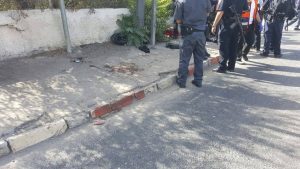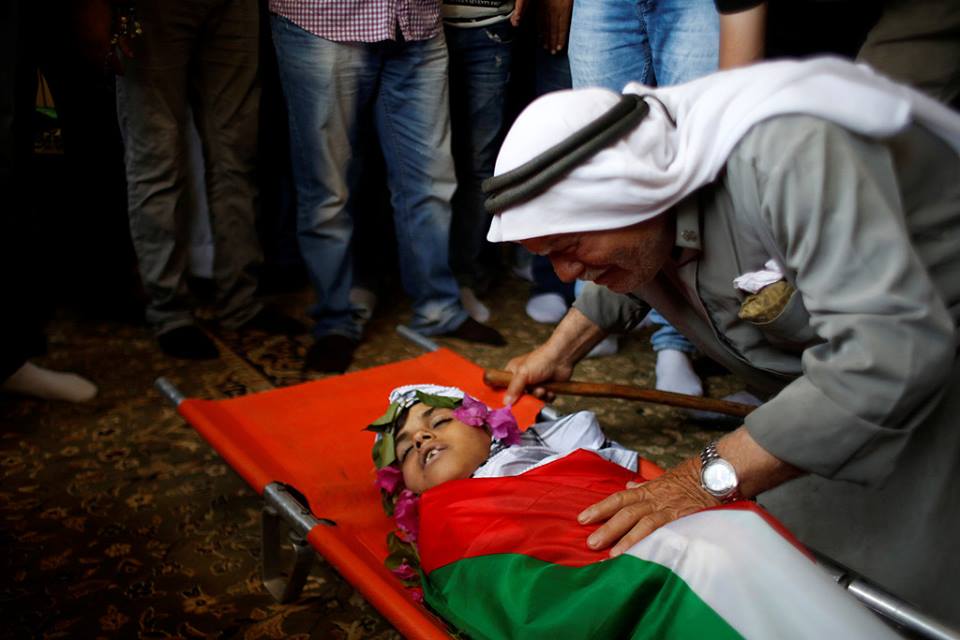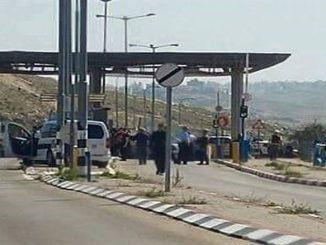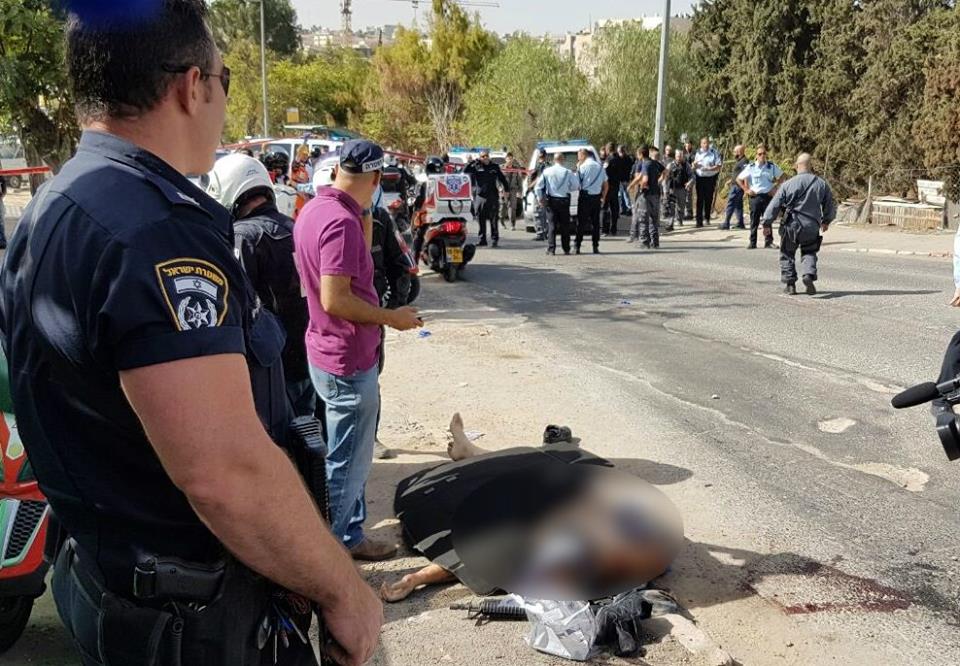
A Palestinian youth and two Israelis were killed in an anti- shooting attack in Occupied Jerusalem on Sunday morning. An Israeli occupation policeman and a 60-year-old settler were killed and five injured after a Palestinian young man carried out an anti-occupation shooting attack near a police station next to the Ammunition Hill light rail station in Occupied Jerusalem.
According to a statement by Israeli police spokesperson Luba al-Samri, the gunman first opened fire across from the regional Israeli police headquarters while he sped towards the Ammunition Hill light rail station, critically injuring a 60-year-old woman, identified by Israeli media as Levanah Malichi, who later succumbed to her injuries after receiving treatment in a hospital. A man was also moderately injured at the same site.
The gunman then continued toward a junction on the other side of the police station, where he opened fire at a woman driving in her car, moderately to seriously injuring her, al-Samri added.
The assailant then fled toward Sheikh Jarrah as Israeli police special forces chased him, and he opened fire at them, critically injuring one policeman and lightly injuring another. The critically injured policeman, identified in Israeli media as First Sergeant Yosef Kirme, succumbed to his wounds in the hospital later in the day. Border police officers then arrived to the scene, shooting and killing the assailant.
Israeli media also reported that three other victims were moderately wounded, while a further three were lightly wounded by shrapnel or suffered from shock. According to Hebrew-language news site Walla, one of the injured was a 63-year-old Palestinian man from the occupied West Bank city of Hebron.
Two of the wounded were reportedly treated at Jerusalem’s Hadassah University Hospital, Mount Scopus, including one moderately wounded and one lightly wounded by shrapnel.
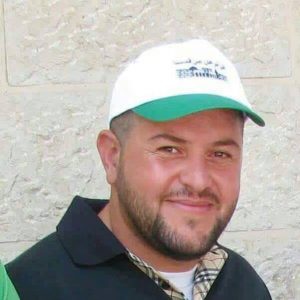
Al-Samri said the slain gunman was a 39-year-old from the neighborhood of Silwan in occupied east Jerusalem.
She later announced that Israeli authorities issued a 30-day gag order for Israeli media on all further details of the shooting, including the name of the slain gunman and the names of the victims. In spite of the gag order, which doesn’t affect Palestinian media, local sources in Jerusalem identified the shooter as 39-year-old Misbah Abu Sbeih from Silwan.
The slain gunman responsible for a shooting attack in occupied East Jerusalem morning that left two Israelis killed and several injured said the day before the shooting that he was planning on turning himself in to Israeli authorities to serve a prison sentence for prior charges.
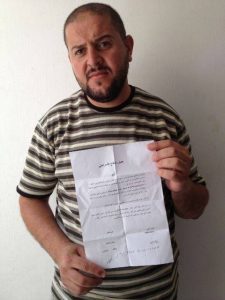
Misbah Abu Sbeih, 39, from the East Jerusalem neighborhood of Silwan, who also lived in the village of al-Ram, told Ma’an via telephone Saturday that he had decided to turn himself into the Israeli Ramla prison at 10 a.m. on Sunday to serve a four-month prison sentence for allegedly assaulting an Israeli police officer.
He said he was detained from the Bab Hutta area in the Old City outside of the Al-Aqsa Mosque compound in 2013 after being accused of the assault, but was released the same day.
According to Abu Sbeih, the case was closed, and he later traveled to Saudi Arabia to perform the Umrah pilgrimage.
However, the case against him was unexpectedly reopened in December 2015, shortly after he was released for spending about a year in prison on separate charges of “incitement” for Facebook posts.
Among the posts he was imprisoned for were: “We sacrifice our souls and our blood for you Al-Aqsa,” and, “we sacrifice our children for Al-Aqsa.”
Last month, following his release, the Jerusalem Magistrate’s court ordered that he turn himself in by mid-October after sentencing him to four months in prison for the alleged 2013 assault.
However, after being threatened by Israeli authorities that they would place him in administrative detention — internment without trial or charge — if he didn’t turn himself in immediately, he had said he had decided to turn himself in on Sunday morning, before ultimately being killed while carrying out the deadly shooting attack.
Abu Sbeih had said Saturday that the decision to turn himself in came after being repeatedly harassed by Israeli police, as he was detained five times over the past two weeks, in some cases for a period of days, sometimes for hours.
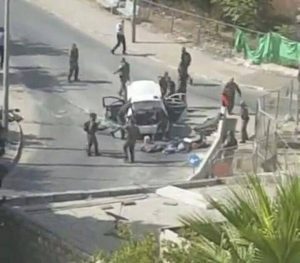
On Oct. 2, he was banned from the whole of East Jerusalem for a month, after he had already been banned from entering the Al-Aqsa Mosque for six months. In July, he was also issued a travel ban until the end of the year.
According to sources in East Jerusalem, Abu Sbeih was a prominent local activist and known to some as “The Lion of Jerusalem,” for being on the “front lines” in “defending” the Al-Aqsa Mosque and the Old City.
“Ahead of Jewish holidays, the Israeli occupation applies a well-known policy, but this time they took it too far,” Abu Sbieh said, referring to heightened security measures imposed by Israeli forces in occupied East Jerusalem amid the Jewish high holiday season.
Last week, Israeli police detained 15 Palestinians in East Jerusalem on the eve of Rosh Hashanah. Israeli police have maintained a heavy presence in the area since, as the Jewish holiday of Yom Kippur begins on Tuesday.
“Jerusalem is under a serious threat of ‘Judaization’ and is under an unprecedented attack by the Israeli authorities,” he said in the phone interview.
Abu Sbeih wrote in his last Facebook post of the Al-Aqsa Mosque: “How I yearn for my love and wish it would be the last thing I see, to kiss and kneel on its soil and pray!
“They gave me four months in prison because I love you (Al-Aqsa), but I replied, ‘That is nothing. I am prepared to give up my life and all of my money for you.’
“Though I can’t enter Al-Aqsa, my soul, my heart, and my eyes will never forget you.”
Abu Sbeih had served a total of 39 months in Israeli custody.
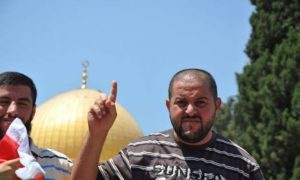
Tensions around occupied East Jerusalem’s Al-Aqsa Mosque compound were a main contributor to a wave of unrest that began last October, after right-wing Israelis made frequent visits to the site during the Jewish holiday season this time last year.
The 39-year-old gunman was the 232nd Palestinian to be killed by Israelis amid the violence, while 34 Israelis have been killed by Palestinians.
The violence has mostly been characterized by small-scale attacks with knives or similar weapons, however, a number of attempted and actual shooting attacks have targeted Israelis over the past year.
A total of 17 Palestinians have been killed while committing shooting attacks, while 16 Israelis have been killed by Palestinian gunmen.
Meanwhile, 19 Palestinians have been killed by Israelis and four Israelis have been killed by Palestinians in alleged and actual attacks at East Jerusalem’s Old City.
Israeli newspaper Haaretz cited Palestinian sources as saying Abu Sbeih was a member of the Murabitun, a Palestinian Muslim group active at the Al-Aqsa Mosque compound who demonstrate against what they see as increasing Israeli control over the holy site.
The Murabitun was banned by Israeli authorities in September for its alleged role in inciting violence and tension in the Al-Aqsa compound.
However, the group has claimed they are defending the mosque from Israeli extremists, who regularly enter the compound protected by armed guards, and incite against Palestinians.
The third holiest site in Islam, Al-Aqsa is also venerated as Judaism’s most holy place, as it sits where Jews believe the First and Second Temples once stood.
Mainstream Jewish law forbids present-day entry to the compound; however, right-wing Israelis gaining ground in the current Israeli government have stoked fears in Palestinians since calling for the destruction of the mosque to make room for a Third Temple.
